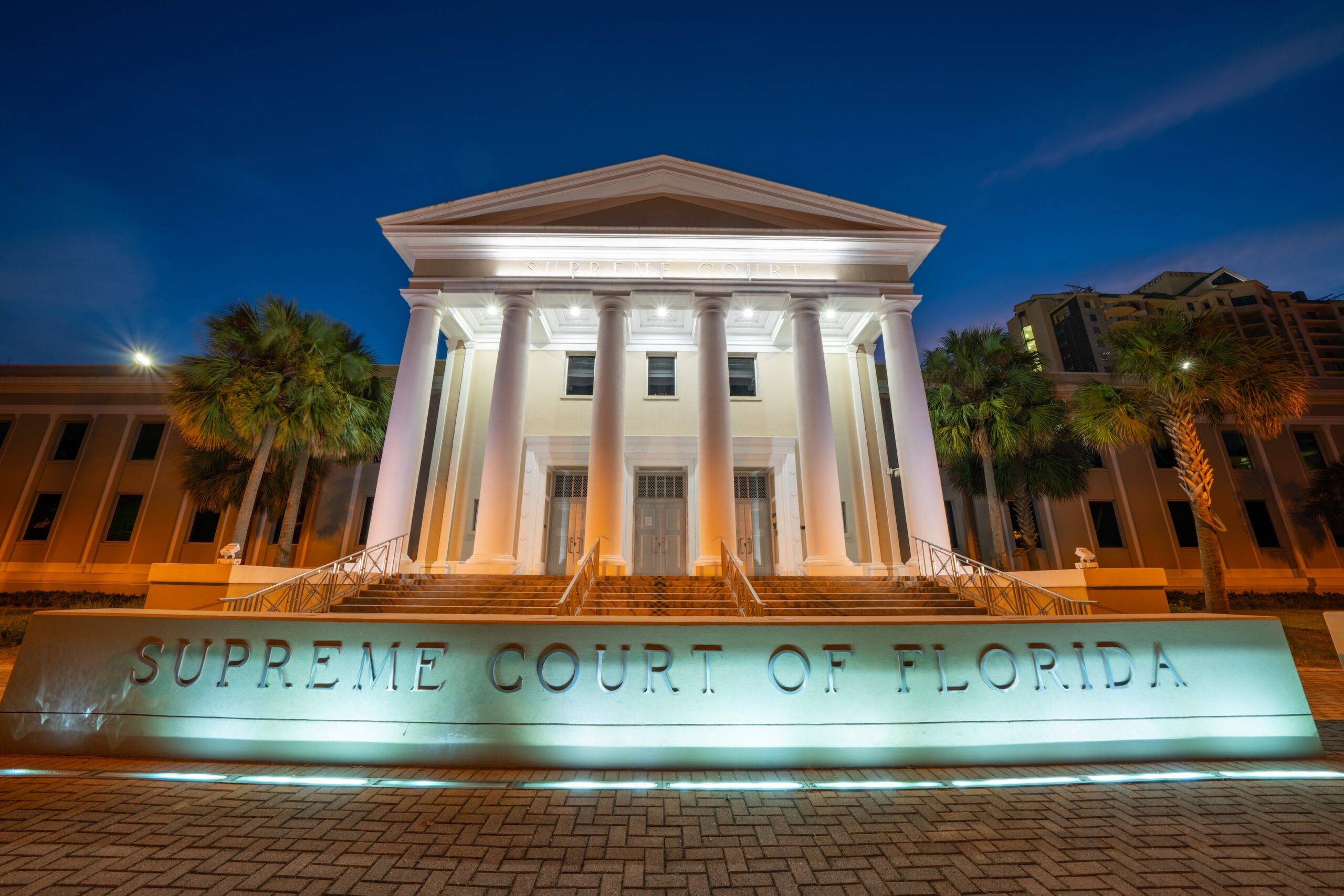The two supreme court decisions put the states at ground zero in the U.S. showdown on abortion
If you think climate change is making things hotter in places like Florida and Arizona, just wait till November.
In 2024 the Florida Supreme Court simultaneously upheld the state’s current 15-week ban on abortion while also approving a ballot measure in November that would enshrine abortion rights for up to about 24 weeks of pregnancy.
Further the court cleared the way for a more restrictive, six-week ban on abortion to go into effect May 1, 2024.
Then, earlier this week on the other side of the country, the Arizona Supreme Court upheld an 1864 abortion ban under territory law enacted nearly a half-century before statehood. Just as in Florida, abortion rights backers say they’ve collected enough signatures for a statewide initiative in November.
The most extreme supreme court decisions on abortion?
Critics call both the nation’s most extreme prohibitions. Offenders could face a third-degree felony charge in Florida and two to five years imprisonment in Arizona.
The Florida legislature passed the six-week version – which Governor Ron DeSantis signed in a late-night private ceremony – last year. But the law was paused pending the Supreme Court’s decision.
The court holdings stand establish the two states as ground zero for a national showdown over abortion.
Can we improve your law firm’s marketing?
We sure can. Our LawMarketLink program is loaded with effective tools and the metrics to prove it.
The Arizona ballot initiative would codify a “fundamental right” to receive an abortion until fetal viability. Exceptions would allow the procedure if a healthcare provider determines the need to “protect the life or physical or mental health” of the mother.
The Florida ballot question lets voters decide whether a new state constitutional amendment will relegate the power of abortion decisions before viability strictly to patients and their healthcare providers.
Note the “before viability” clause. The qualification still limits abortions to pregnancies no more advanced than about six months.
Further, the initiative allows such abortions only “when necessary to protect the patient’s health, as determined by the patient’s healthcare provider.” Hence, women learning of acute complications for any reason in the third trimester – including development of a life-threatening (to both mother and child) form of preeclampsia, as well as delayed discovery of severe and/or fatal birth defects – would have no choice but to take their chances with delivery.
Striking similarity to SCOTUS decision on Dobbs
Potentially most interesting to legal scholars and practitioners is a striking similarity to the U.S. Supreme Court’s overturning of Roe v. Wade in its 2022 holding in Dobbs v. Jackson Women’s Health Organization. The SCOTUS decision reversed 49 years of precedent under Roe (1973), Planned Parenthood of Southeastern Pennsylvania v. Casey (1992), and another nearly dozen cases reaching the nation’s highest court over a half-century period.
Likewise, the Florida Supreme Court’s decision likewise upends decades of abortion-protecting precedent under a state constitutional privacy amendment beginning in 1989, says retired state Chief Justice Barbara Pariente.
“Whether Florida’s Constitution provided a right to privacy that encompassed abortion was never questioned, even by those who would have been deemed the most conservative justices – almost all white men back in 1989!” wrote Pariente in an April 8 essay.
Opponents argue the amendment allows anyone to perform an abortion and “mandates unlimited abortion in Florida,” the latter according to the Florida Voice for the Unborn, a lobbying group founded by a former Michigan assistant attorney general “[i]nspired by the Holy Spirit.”
Even with the 15-week ban, Florida has become an abortion mecca for pregnant women from other Southern states with even stricter restrictions.
State backlashes to pass abortion-rights measures
Groups in at least 10 other states are attempting to pass abortion-rights measures this year. Initiatives have passed in seven states thus far, including deep-red Kentucky and Kansas.
At the same time, the more often a state passes a law recognizing a fetus as a person, the easier it becomes to argue – ultimately to the U.S. Supreme Court – that fetuses should be so deemed everywhere under the 14th Amendment, says University of California-Davis law professor Mary Ziegler, author of six books on abortion and reproductive law.
In sum, by November, anyone looking to escape the coming winter’s cold should find plenty of heat in the sun belt in more than one sense.
Disclaimer
The information on this website does not constitute legal advice and is not guaranteed to be correct, complete, or up to date. The information is provided as is without warranty of any kind, either express or implied, including but not limited to, the implied warranties of merchantability, fitness for a particular purpose, or non-infringement. Vanguard Communications authorizes website visitors to view, store, print, reproduce, copy, and distribute any pages for non-commercial purposes. In consideration of this authorization, you agree that a) any copy of these documents shall retain copyright and other proprietary notices herein, and b) this disclaimer is included with any distribution.
